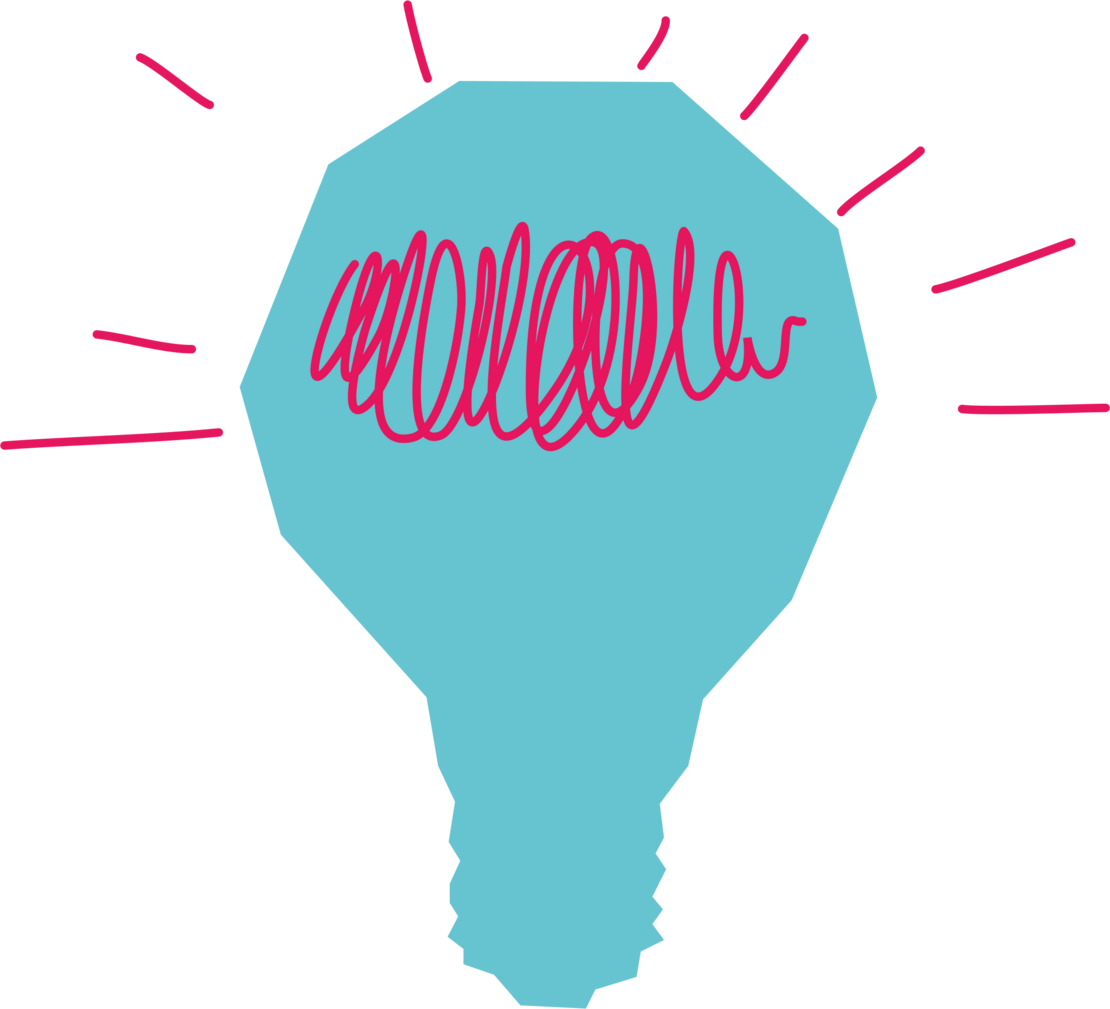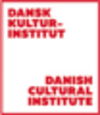What we do
Are you a CCI professional, support organisation or stakeholder in need of international contacts and cooperation possibilities?
Maybe you need guidance and knowledge on how to implement international CCI activities? Or maybe you just want to know more about the EU-funded Creative Ports project that aims to encourage collaborations between CCI actors in the Baltic Sea Region?
Then contact the CCI Contact Desk. We can help:
- facilitate contacts to the right CCI organisations, experts and stakeholders
- guide you to the right tools, knowledge and know-how
- provide you with more information on Creative Ports
Moreover, the CCI Contact Desk also connects EU National Institutes for Culture (EUNIC members) to CCI support organisations and public authorities in the Baltic Sea Region, creating and facilitating partnerships that plan joint activities.
The Goethe-Institut is the cultural institute of the Federal Republic of Germany with a global reach. It promotes knowledge of the German language abroad and fosters international cultural cooperation. Goethe-Institut conveys a comprehensive image of Germany by providing information about cultural, social and political life. The cultural and educational programmes of the Goethe-Institut encourage intercultural dialogue and enable cultural involvement. They strengthen the development of structures in civil society and foster worldwide mobility.
For many the network of Goethe-Instituts, Goethe Centres, cultural societies, reading rooms and exam and language learning centres has been the first point of contact with Germany for over sixty years. Our long-lasting partnerships with leading institutions and individuals in over ninety countries create enduring trust in Germany. The Goethe-Institut is a partners for all who actively engage with Germany and its culture, working independently and without political ties.
More knowledge, space, financing and innovation for Hamburg’s creative minds – this is the mission to which Hamburg Kreativ Gesellschaft, an institution of the Free and Hanseatic City of Hamburg, is committed. Since our founding in 2010, Hamburg Kreativ Gesellschaft is a central point of contact for all players in Hamburg’s creative industries. In addition to workshops, lectures and networking events, Hamburg Kreativ Gesellschaft also offers individual consulting, coaching, crowdfunding and assistance in financing and finding suitable workspaces for authors, filmmakers, musicians, visual and performing artists, architects, designers, game developers and all other professional groups from the eleven submarkets of the creative industries. Some of our offers and events are expressly aimed at students of creative courses of study.
Inspiring change in perspective
Meeting eye to eye creates space for new perspectives, visionary thinking and innovative approaches. That is why Hamburg Kreativ Gesellschaft continuously develops new offers in the Cross Innovation Hub with which specifically creative and other industries are encouraged to engage in exchanging ideas. At hackathons, business minds code with creative artists, in bar camps, employees from large corporations engage in dialogue with creative freelancers, and in work shadowing programme, bank executives and design experts look over each other’s shoulders. In the Cross Innovation Hub, new solutions for an increasingly complex world of life and work are developed.
The network ARS BALTICA supports the implementation of artistic/cultural projects of high-quality with a strong focus on the BSR. It offers platforms for the exchange of knowledge and experience in the field of (cross-)cultural co-operation. Thus, it adds value to already existing projects and co-operation models through active networking from a higher perspective.
ARS BALTICA advocates culture at the meetings of other organisations of the region in order to increase the significance of the cultural sector. It develops contacts and collaboration with other regional networks and strengthen regional co-operation and promotes the Baltic Sea cultural life outside the own core region co-operating with other leading European cultural organisations. It gives input to a common Baltic Sea cultural policy.
Danish Cultural Institute (DCI) is a self-governing institution with its own board. Since 1940 we have been engaged in creating mutual understanding between people.
Together with partners, we develop international activities that push boundaries and create opportunities, which provide mutual value and inspire.
Our vision is to show that the exchange of arts, culture and knowledge can contribute to handling the challenges of globalization and further the UN’s Sustainable Development Goals. It is even more true when it comes to equal rights, education, sustainable development, democracy and active citizenship which are important values in the world and in Denmark.
Currently Danish Cultural Institute has offices in Beijing, Brussels, Copenhagen, Riga, Rio de Janeiro, St. Petersburg, Warsaw and New Delhi. Main office is in Copenhagen, Denmark.
Tallinn University of Technology (TalTech), the only technological university in Estonia, is the flagship of Estonian engineering and technology education. Here the synergy between different fields (technological, natural, exact, economic and health sciences) is created and new ideas are born. Tallinn School of Business and Governance (SBG) as a part of Tallinn University of Technology provides educational, research and innovation services in the fields of Entrepreneurship and Business Development, which are internationally competitive and significant for Estonia's sustainable development. The Department of Business Administration of TalTech has long and profound experiences in carrying out relevant research and project work including projects on business internationalisation, entrepreneurship education, start-up support and development of entrepreneurial competencies, including cluster building and business development in the CCI sector.
Tallinn Business Incubators (TBI), founded in 2006 by the city of Tallinn, is an entrepreneurial hub supporting local creative companies. TBI helps starting companies to grow and established ones to expand to new markets. TBI has extensive international and local co-operation experience with over 20 successful projects completed. TBI operates two branches: Tallinn Creative Incubator and Tallinn Design House.
Tallinn Creative Incubator (TCI) has contributed to more than 350 creative companies’ growth since its establishment in 2006. TCI offers a 24-month incubation program divided into four 6-month interim periods, each ending with an evaluation panel. There are 40 companies in the program on a yearly basis. TCI offers every company: a personal key coach and a network of 30+ business mentors; regular trainings, workshops, hackathons, networking; central location; grants in partnership with private sector. TCI customers range from product designers to digital content creators. The main evaluation criteria for entering the program are: highly skilled team in the chosen domain, validated market, product with a distinct value offer and ambition to grow internationally.
Tallinn Design House (TDH) is a premium store space and showroom in downtown Tallinn, which operates as a joint marketing and export platform for a premium selection of Estonian brands. TDH provides brand and marketing support for established designers and is a valued partner for Estonian designers.
Creative Estonia is a creative industries development centre, which helps to promote and develop creative industries and creative businesses in Estonia and abroad and to highlight the role for innovation of creatives in other sectors.
Creative Estonia’s aim is to make public the unique characteristics, economic, social and regional value of creative industries; support start-ups and established businesses with much needed information and advice; develop an attitude that creates a positive image of business and to increase the business and export ability of creative businesses.
To encourage contact between businesses and creative people, Creative Estonia organises various events and seminars as well as trainings, open-coffee style meetings and short lectures where creative businesses and potential investors are brought together.
Since the role of starting and existing creative businesses is vital for economic development, Creative Estonia is running a virtual product and service development environment (PESA), which is a web-based incubator for creatives. Today each year 20 companies with great export potential from different parts of Estonia are taking part in the one-year support program.
Creative Estonia conducts its work with advice from a think tank that includes leaders from creative industries support structures and development centres from various creative associations. All work is carried out by Creative Estonia along with representatives of the target groups and partners.
Filmby Aarhus is Aarhus Municipality’s focus on film, media production and digital experiences. Filmby Aarhus houses 80+ media businesses producing films, VR, games and much more plus two film studios and two educations (VIA Film & Transmedia and Kaos Pilot).
Filmby Aarhus’ strategy, called The Big Picture, centers around facilitating the meeting between digital creative content and more traditional sectors who can benefit from using digital content.
Besides from Creative Ports, Filmby Aarhus has held different international development projects, such as the Interreg BSR projects First Motion and Cross Motion and the NSR projects North Sea Screen Partners and Create Converge, which is running until July 2020.
Filmby Aarhus is also the organization behind an incubator called Ideas Lab, where startups working with digital experiences can work and grow through structured sparring. Every year, Filmby Aarhus is the sender of a business festival called this. – a digital festival and conference at the southern harbor of Aarhus – together with creative partners such as M2Film and Sybo Games.
Also, Filmby Aarhus holds the secretariat for The West Danish Film Fund and the West Danish part of the cluster organization Interactive Denmark, that facilitates network- and investor meetings and business developing workshops for the digital visual industry.

South-Eastern Finland University of Applied Science - Xamk - is an institute of higher education which focuses on wellbeing, technology and creative industries. Xamk is the 5th largest university of applied sciences in Finland anda strong implementer of RDI activities. There are over 250 ongoing projects annually and Xamk is currently Finland’s largest UAS in the field of RDI. In geographical terms RDI activites are mainly focused on Europe, the Baltic Sea Region and Russia.
The Creative Industries Research Unit’s focus areas reflect those of the university including design, well-being and health, sustainability and the environment as well as the digital and creative economy in multi-disciplinary contexts. Working closely with its regional partners it is active in developing new opportunities and environments for creative entrepreneurship and regional competitiveness also through cultural tourism and heritage.
Vilnius is the capital of the Republic of Lithuania and the largest administrative centre of Lithuania with all major political, economic, social and cultural centres of the country. Half of all Lithuanian creative industries are constituted in Vilnius. It is the most rapidly expanding city in Lithuania, having the highest GDP per capita and the fastest growth rates. Vilnius attracts about two-third of all direct foreign investments in Lithuania. Vilnius City Administration comprises nine departments, twenty-one districts and divisions, services and offices. The culture sector is administered by Culture Division.
The majority of Lithuania’s academic institutions are concentrated in Vilnius. The increasing level of people with higher education creates favourable conditions to improve cultural competencies, to promotes initiatives of arts and cultural community and raises the requirements for cultural quality in life.
Vilnius Strategy of Culture Development of 2012–2020 refers to the cultural policy which is designed and open for innovation. It is based on multinational cultural heritage and invites representatives from different cultures to contribute to the cultural development of the city. It creates equal opportunities for everyone to participate in cultural activities and focuses on the creation of a dynamic and creative image of Vilnius that is attractive to tourists and makes residents proud of their city. Vilnius Strategy of Culture Development of 2012 –2020 focuses on the key aspects education, leisure and economy and the main principles involve: Democracy, openness and multiculturalism. Its main goals are: Involvement of the local community, creativity stimulation and international competitiveness.
The Marshal’s Office of the Westpomeranian Region constitutes an organizationally independent budget entity of the region’s local government. West Pomerania is the westernmost and fifth largest region of Poland. The region is characterised by surprising modernity and high quality of life. The Westpomeranian border with the Baltic Sea and Germany accounts for nearly 40% of the entire regional border, which contributes to its strongly diversified and cosmopolitan character. The region’s priority is to establish a better understanding of the principles of Cultural and Creative Industries and the concept of a Creative Economy.
In the project the Westpomeranian Region is a leader of the activity titled “Exchange on CCI strategies and support programmes”. Within the scope of the project the region undertakes actions in order to develop creative industry ecosystem. The region wants to achieve that CREATIVE PORTS will lead to increased capacity and knowledge about internationalization process in the creative industries.
Media Dizajn is a facilitator of a cluster initiative in West Pomeranian Region Poland comprising about 100 entities. The cluster gathers companies, business institutions, public bodies as well as academia to boost the performance of the creative industries in the region. The goal is to create an open, innovative ecosystem creates new competences, initiates cross industry cooperation as well as international networks. The cluster works together to deliver innovative solutions and implement creative industries in business, science and society.
Media Dizajn is a platform serving the gathered entities in gaining business development opportunities, technology transfer, know-how and creating and using the synergy effect of network cooperation. Members' activity allows them to achieve competitive advantage, increase creativity, innovation and internationalisation. These aspects, through the effect of creating value in the network, will allow to increase the market opportunities of the associated entities.
The strategic action program includes activities such as:
- We teach: we run workshops on business modeling, creativity, product and service introduction on the market;
- We combine: we support networking among specialists, experts, scientists and entrepreneurs in Poland and in Europe;
- We consult: we advise organizations in the process of introducing social innovations, we co-create strategies and business solutions;
- We research: we conduct quantitative and qualitative research, including anthropological research and analysis of trends in the creative sector;
- We manage: projects in the Prince and Scrum methodologies. We are converting ideas into projects, we find sources of financing, we implement and account for them;
- We play: we organize events: seminars, national and international conferences, concerts, picnics, film meetings, and others.
Media Evolution is a non-profit members organization that brings together the innovative tech agencies, the creatives, the big corps, the makers, the academy, the strategists and the local municipalities and regions of southern Sweden. All of which share the reality of the digital transformation – but have very different things to contribute in making sure it evolves in the way we want to.
Our mission is to foster growth and innovation in the digital/creative industries of southern Sweden and we do so by offering a platform with plenty of formats for sharing ideas, develop competencies and for innovation processes. We also pursue pioneering projects, locally and globally, to create new markets for our members.
Media Evolution started in 2008, as a joint initiative between the private sector, the academy and the public sector to promote the conditions for growth and innovation in the media industries. As the time has passed, media has grown to incorporate all sorts of organizations dealing with digital development and today, there are more than 400 of them.
Get in touch!
Want to know more or cooperate with CCI Contact Desk?
If this sounds interesting, you are very welcome to write to the Contact Desk and hear more about the possibilities for joining the partnership!
Lastly, the Contact Desk will also work as a durable platform for lasting cooperation on a transnational level which will help ensure the continuation of the results of the Creative Ports project after its end. So don’t worry! We aren’t going anywhere.
The CCI Contact Desk can be reached at lara.loeser[at]goethe.de or by filling out the form here. We look forward to hearing from you!
















